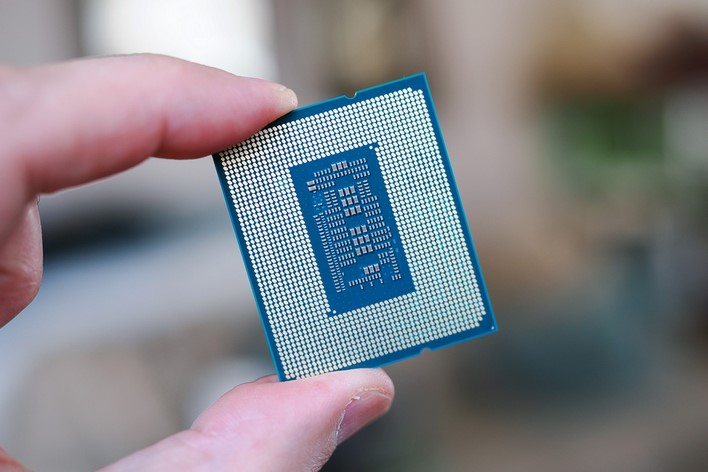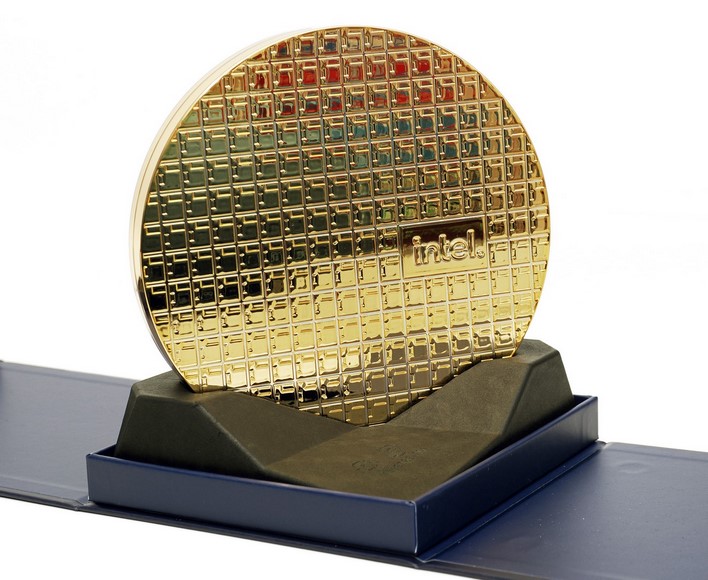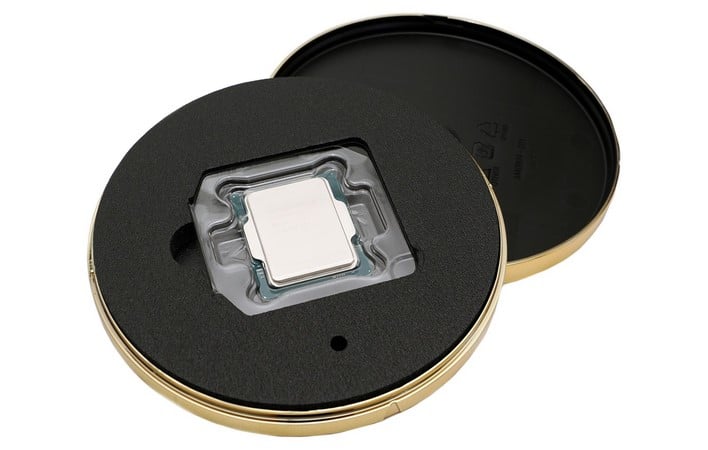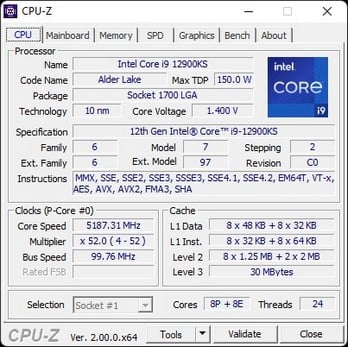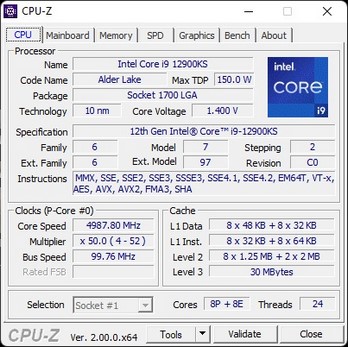Core i9-12900KS Review: Intel’s Fastest Alder Lake CPU Tested
Intel Core i9-12900KS Review: Alder Lake 12th Gen Core Gets A Boost
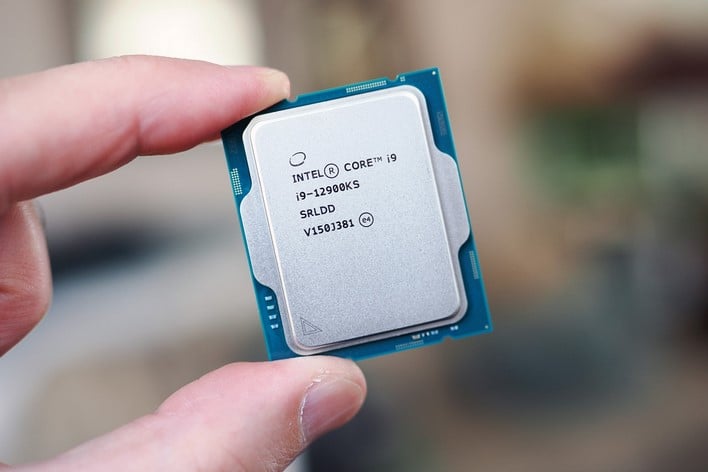
Intel bills the Core i9-12900KS as “the ultimate processor for enthusiasts and gamers”. And Intel can certainly make that case. Alder Lake has proved to be an excellent performer, with class-leading single-threaded performance and responsiveness, with highly-competitive multi-threaded performance across a variety of workloads. The rest of the platform and its companion 600-series chipsets further enhance the story, with leading-edge IO and connectivity options abound.
What Makes The Core i9-12900KS Different?
At its foundation, the Core i9-12900KS is identical to the Core i9-12900K. It has 16 cores (eight Performance-cores and eight Efficient-cores) and support for 24 threads. The chip has a 150W base power and 30MB of shared Intel Smart Cache. The 12900KS’ clock frequencies are different, however. The complete breakdown is as follows...| CPU Specifications | Core i9-12900K | Core i9-12900KS |
| Total Cores | 16 | 16 |
| # of Performance-cores | 8 | 8 |
| # of Efficient-cores | 8 | 8 |
| Total Threads | 24 | 24 |
| Max Turbo Frequency | 5.2GHz | 5.5GHz |
| Intel Thermal Velocity Boost Frequency | - | 5.5GHz |
| Intel Turbo Boost Max Technology 3.0 Frequency | 5.2GHz | 5.3GHz |
| Performance-core Max Turbo Frequency | 5.1GHz | 5.2GHz |
| Efficient-core Max Turbo Frequency | 3.9GHz | 4GHz |
| Performance-core Base Frequency | 3.2GHz | 3.4GHz |
| Efficient-core Base Frequency | 2.4GHz | 2.5GHz |
| Intel Smart Cache | 30MB | 30MB |
| Total L2 Cache | 14MB | 14MB |
| Processor Base Power | 125W | 125W |
| Maximum Turbo Power | 241W | 241W |
In addition to having higher clocks across the board, the Core i9-12900KS also offers a 5.5GHz max turbo frequency when leveraging Intel Thermal Velocity Boost, which allows for higher multi-core turbo frequencies when there is thermal headroom available. Other than those clocks though, there isn’t anything to differentiate the Core i9-12900K and 12900KS. They are both unlocked K-SKUS, and they both offer official support for up to DDR5 4800MT/s or DDR4 3200MT/s memory speeds (or much higher with overclocking), PCIe Gen 5.0 and 4.0, work in the same platforms / socket, etc.
Intel Core i9-12900KS In Retail Packaging
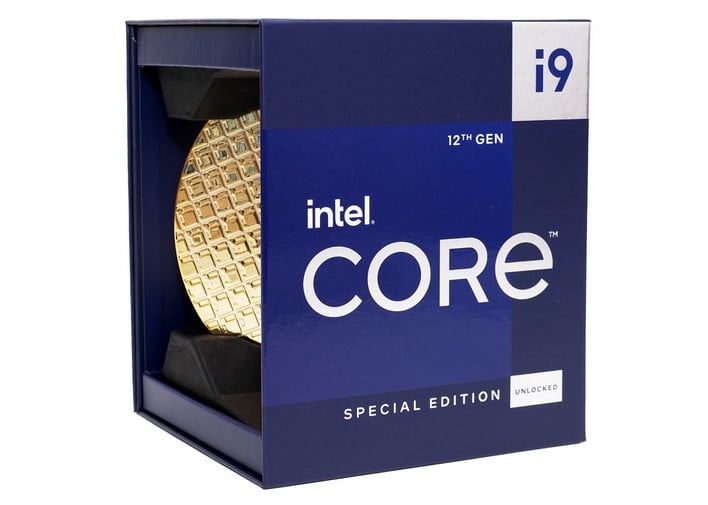
Retail versions of the Core i9-12900KS ship in some interesting packaging. The box is clearly designated ‘Special Edition’, and features all of the typical branding we’ve come to expect, like the model number and family.
The box folds open to reveal a faux gold wafer inside. That gold wafer is like a flattened cookie-tin; pop it open and the Core i9-12900KS is revealed inside.
The Core i9-12900KS doesn’t include any cooling and special accessories. It drops into the same socket and motherboards at other 12th Gen Core series processors, provided the motherboard has a compatible BIOS. Obviously, since this is the highest-clocked, best-performing 12th Gen Core processor based on the Alder Lake architecture, it is best suited to high-end, enthusiast-class motherboards based on the Z690 chipset, with robust power delivery and comprehensive overclocking tools to wring the most performance from the chip.
The box folds open to reveal a faux gold wafer inside. That gold wafer is like a flattened cookie-tin; pop it open and the Core i9-12900KS is revealed inside.
The Core i9-12900KS doesn’t include any cooling and special accessories. It drops into the same socket and motherboards at other 12th Gen Core series processors, provided the motherboard has a compatible BIOS. Obviously, since this is the highest-clocked, best-performing 12th Gen Core processor based on the Alder Lake architecture, it is best suited to high-end, enthusiast-class motherboards based on the Z690 chipset, with robust power delivery and comprehensive overclocking tools to wring the most performance from the chip.
Intel Core i9-12900KS CPU-Z Details
CPU-Z doesn’t reveal any surprises here. The Core i9-12900KS is based on the same stepping and revision as other 12th Gen Core i9 processors. The L1, L2, and L3 cache configuration is also the same. Again, the only real differences are related to frequency. Here, you can see the Core i9-12900K loaded with a single-thread (left), and multi-threaded (right). When thermally saturated, as was the case in this test, clocks will typically hover at the P-cores' max turbo frequency (5.2GHz), though it will boost higher, power and thermals permitting.
We’ll determine what the means for performance next...

